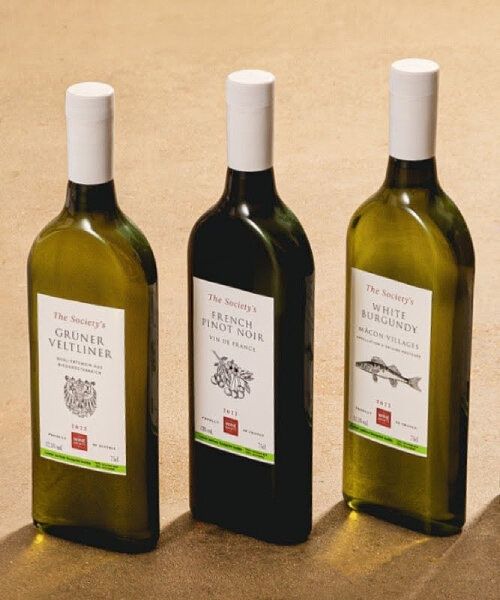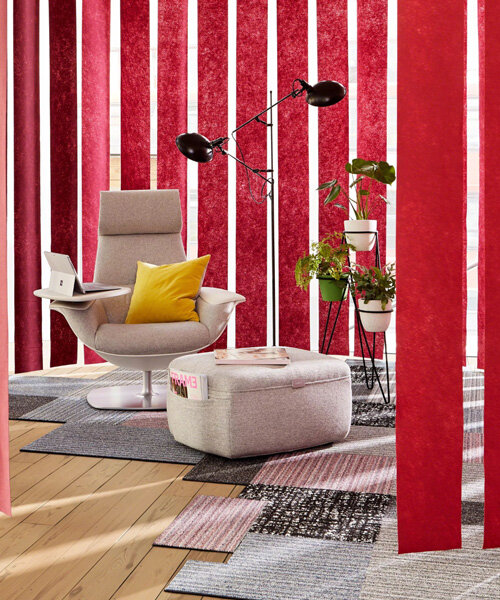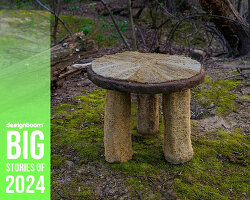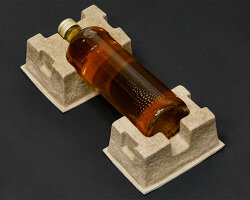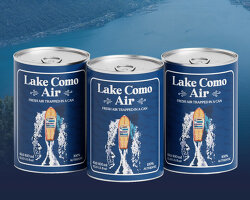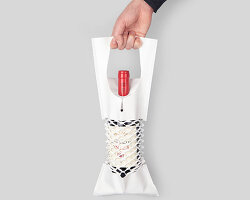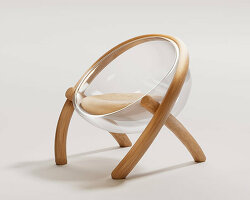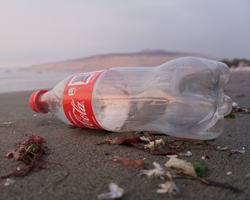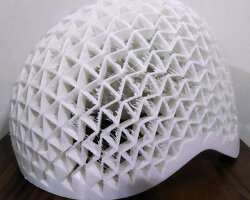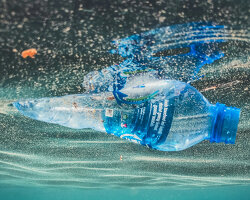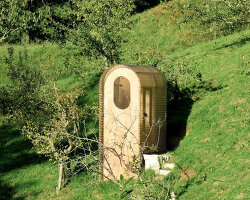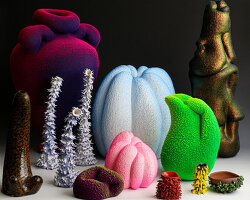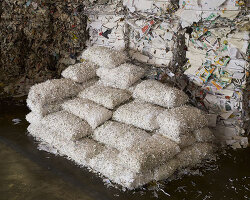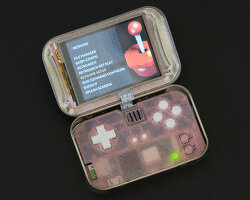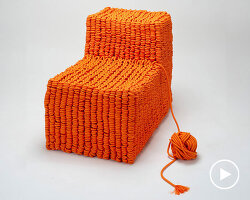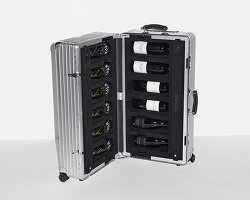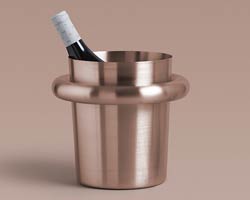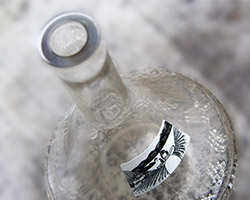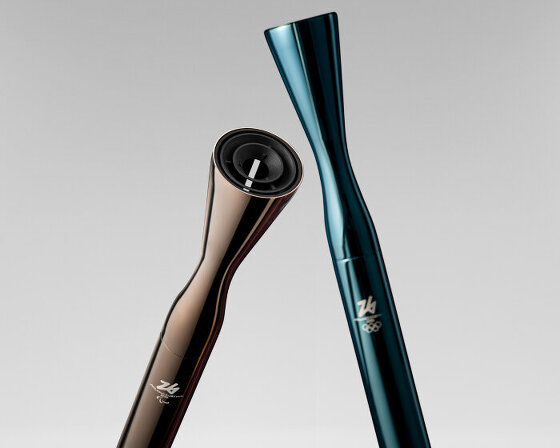Recycled plastic for the wine society’s modern flat bottles
The Wine Society shapes recycled PET plastic into flat bottles, the packaging design for their line of alcohol such as Chardonnay, Pinot Noir, Beaujolais-Villages, and White Burgundy. The flattened bottles are just over 9 centimeters wide and 4 centimeters deep. They’re lighter than glass bottles (63 grams compared to the glass average of 453 grams). The cooperative says that because of this weight reduction, there are lower carbon emissions in terms of production, shipping, and recycling. Now, a standard pallet can hold around 100 recycled plastic flat wine bottles, compared to only 48 to 56 cases of typical glass packaging.

all images courtesy of The Wine Society
UV inhibitor layer to protect wine from sulfur aromas
The Wine Society says they only use 100 percent recycled PET plastic for their flat wine bottles, collected by 99 percent of UK local authorities in curbside recycling. This means that there’s no new plastic manufactured, and the caps and labels can also be repurposed. Clients are worried whether the modern packaging can affect the taste of the wine. The cooperative adds that the colorless flat wine bottles have a UV inhibitor layer to protect the liquid from reacting to rays that can lead to sulfur aromas similar to rotten eggs or cabbage.
The bottles also have advanced oxygen-scavenging barrier technology, so the clients can store the wine for quite a long time, but the cooperative suggests it’s better to drink the wine within 12 months of purchase. The caps and labels are recyclable too, tailored for the flat wine bottles, and the clients can just throw the entire packaging in their recycling trash cans (or reuse them).
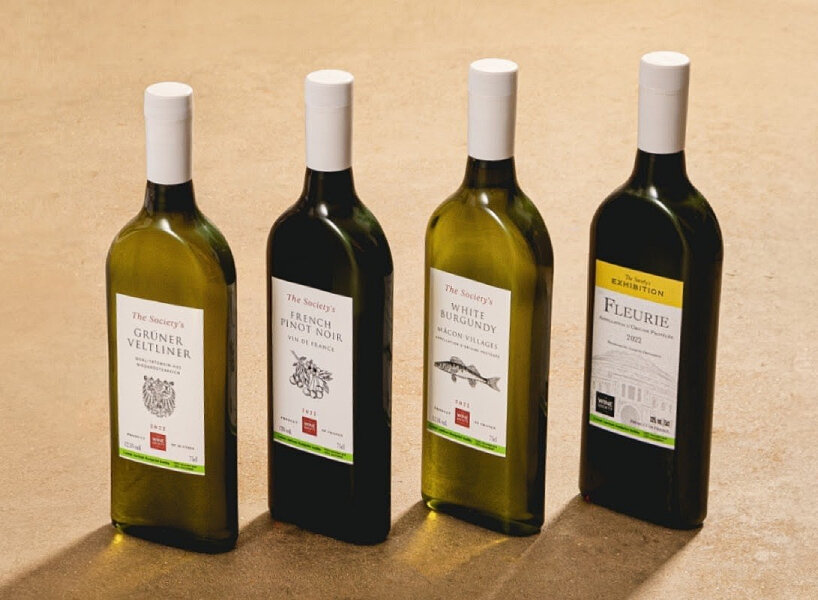
the packaging design is for Chardonnay, Pinot Noir, Beaujolais-Villages, White Burgundy, and more
‘lower carbon footprint than single-use glass bottles’
In a study conducted by The Wine Society in January 2024, the findings show that the recycled plastic flat wine bottles have a ‘significantly lower carbon footprint than single-use glass bottles’ because it takes less energy to make them. They’re also smaller and not prone to breaking, unlike glass, so they can be shelved into boxes and pallets more tightly, reducing the shipping process. The cooperative has also asked 1,300 respondents about their take on switching from glass to recycled plastic flat wine bottles.
They share that 79 percent of their clients are satisfied with the new format, and just over 72 percent of them are content with the quality and taste of the wine from the plastic bottle, and around 90 percent of them are willing to repurchase the wine in modern packaging. As of publishing the story, The Wine Society makes the recycled plastic flat wine bottles available for their line of 2023 Chardonnay, Pinot Noir, Beaujolais-Villages, and White Burgundy.
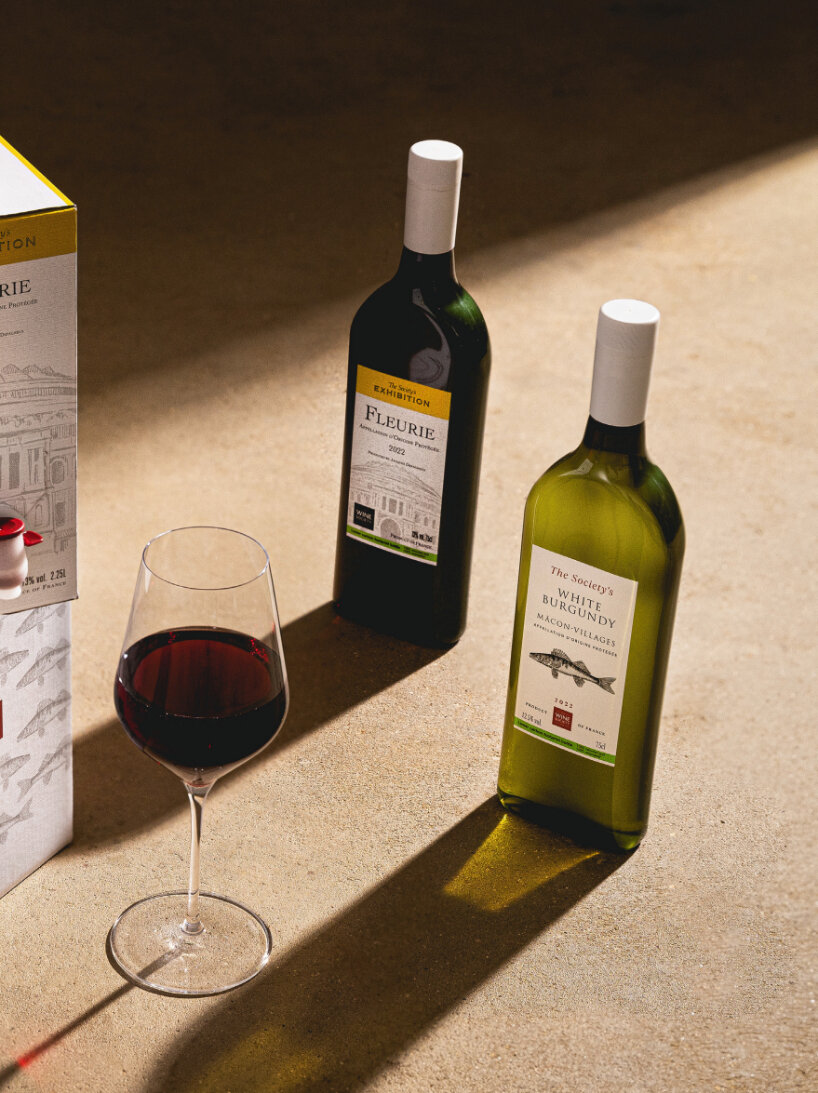
a standard pallet can hold around 100 recycled plastic flat wine bottles
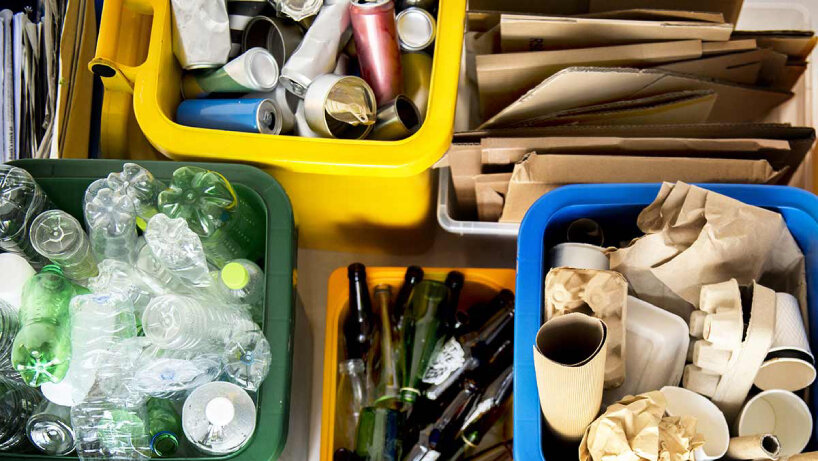
there’s no new plastic manufactured, and the caps and labels can also be repurposed
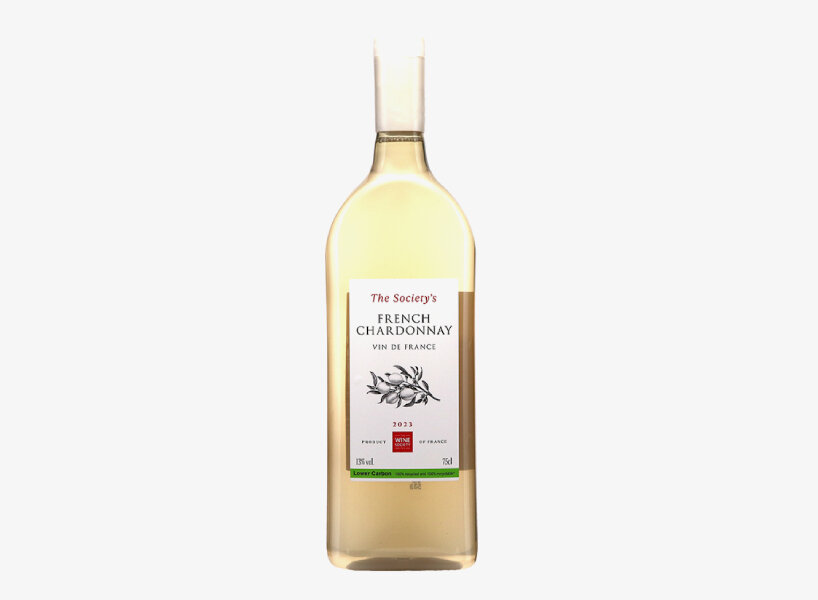
French Chardonnay
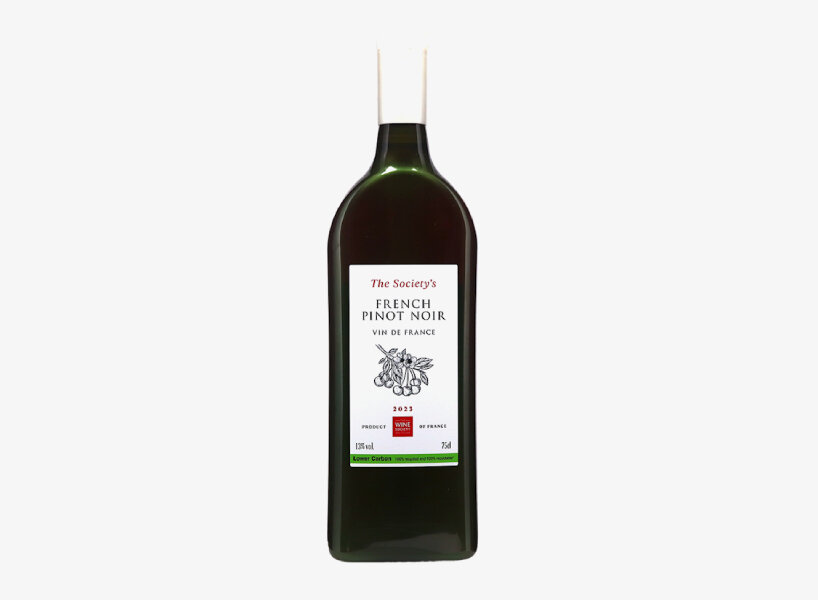
French Pinot Noir
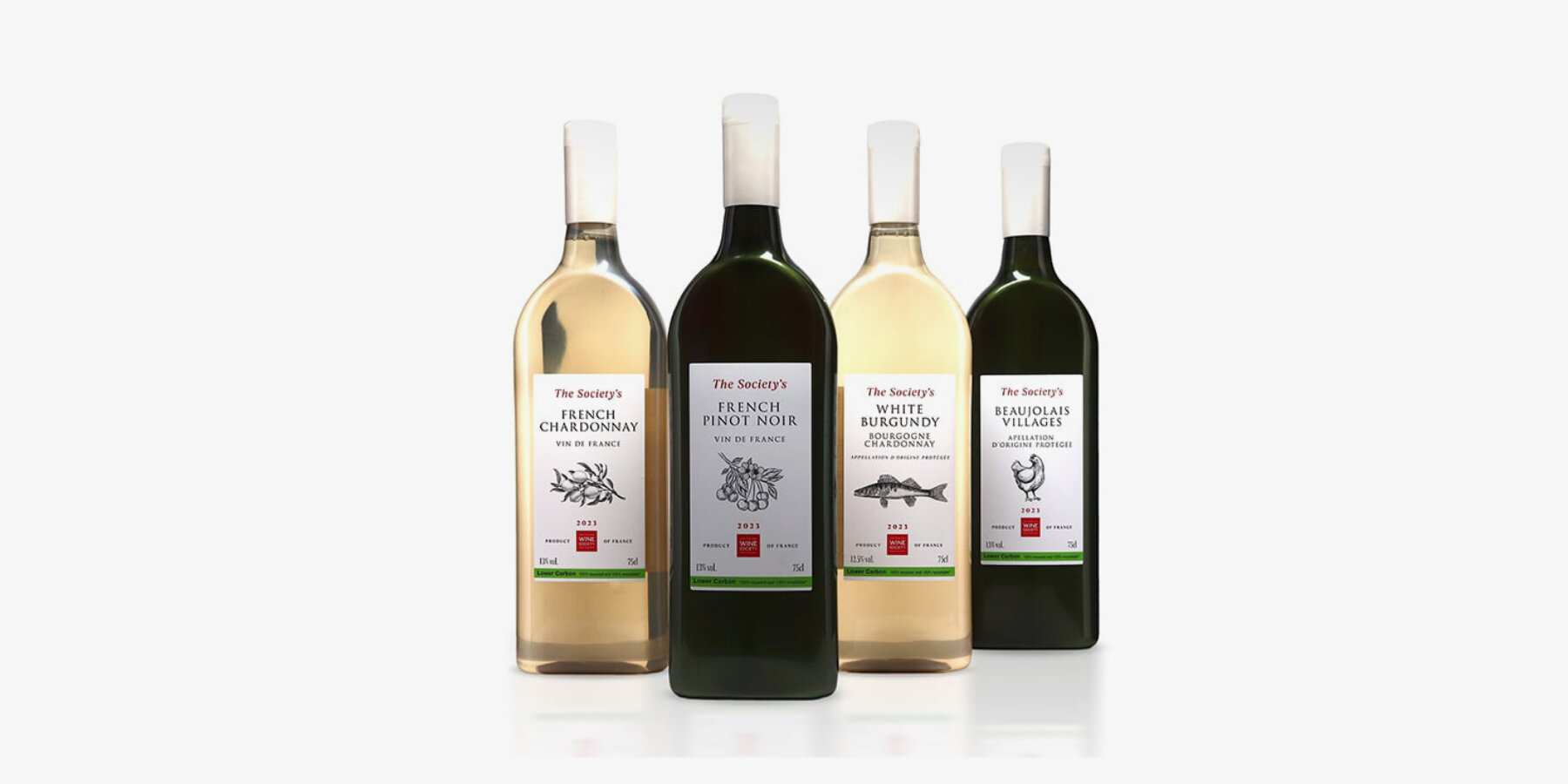
the cooperative suggests drinking the wine within 12 months of purchase
project info:
name: Recycled PET wine bottles
cooperative: The Wine Society | @thewinesociety1874
report: here
